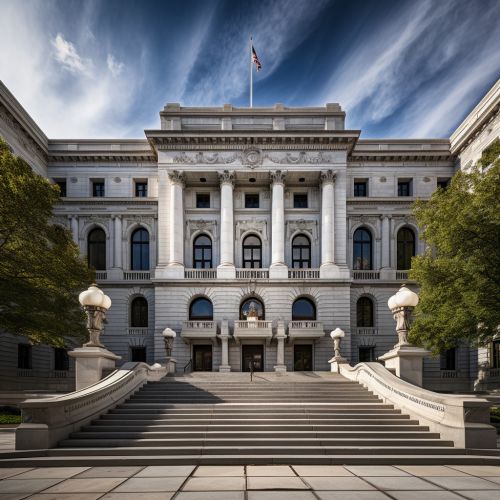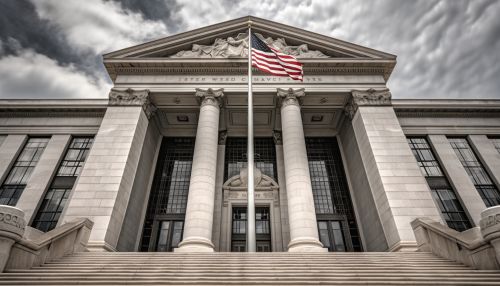United States courts of appeals
Overview
The United States courts of appeals are the intermediate appellate courts of the federal judiciary of the United States. They are composed of thirteen circuits; the 1st through 11th Circuits, the District of Columbia Circuit, and the Court of Appeals for the Federal Circuit. These courts are responsible for hearing appeals from decisions of the United States district courts, and in some cases, directly from federal agencies.
Structure
Each circuit of the U.S. courts of appeals is presided over by a circuit judge. The number of judgeships for each circuit is set by Congress and varies depending on the volume of cases in the circuit. The judges are appointed by the President of the United States and confirmed by the United States Senate. They serve lifetime appointments, unless they choose to retire or are removed from office through impeachment.


Jurisdiction
The jurisdiction of the U.S. courts of appeals is primarily appellate, meaning they review decisions of the district courts within their circuit. However, they also have original jurisdiction in a few types of cases, such as those involving certain types of injunctions and mandamus orders. The decisions of the courts of appeals are binding on the district courts within their circuit, and on the circuit court itself in future cases.
Procedure
Cases in the U.S. courts of appeals are usually heard by a panel of three judges. The court's decision is determined by a majority vote. In some cases, the court may sit en banc, meaning all the judges of the circuit hear the case. This usually happens when the court needs to resolve a conflict in its own decisions or when the case is of exceptional importance.
Role in the Judicial System
The U.S. courts of appeals play a crucial role in the federal judicial system. They are the final arbiter of most federal cases, as the United States Supreme Court hears a limited number of cases each year. The decisions of the courts of appeals significantly influence the development of American law, as they interpret statutes, regulations, and constitutional provisions.
Notable Cases
Over the years, the U.S. courts of appeals have decided numerous notable cases that have had significant impacts on American law and society. These include landmark decisions on civil rights, criminal law, administrative law, and constitutional law.
